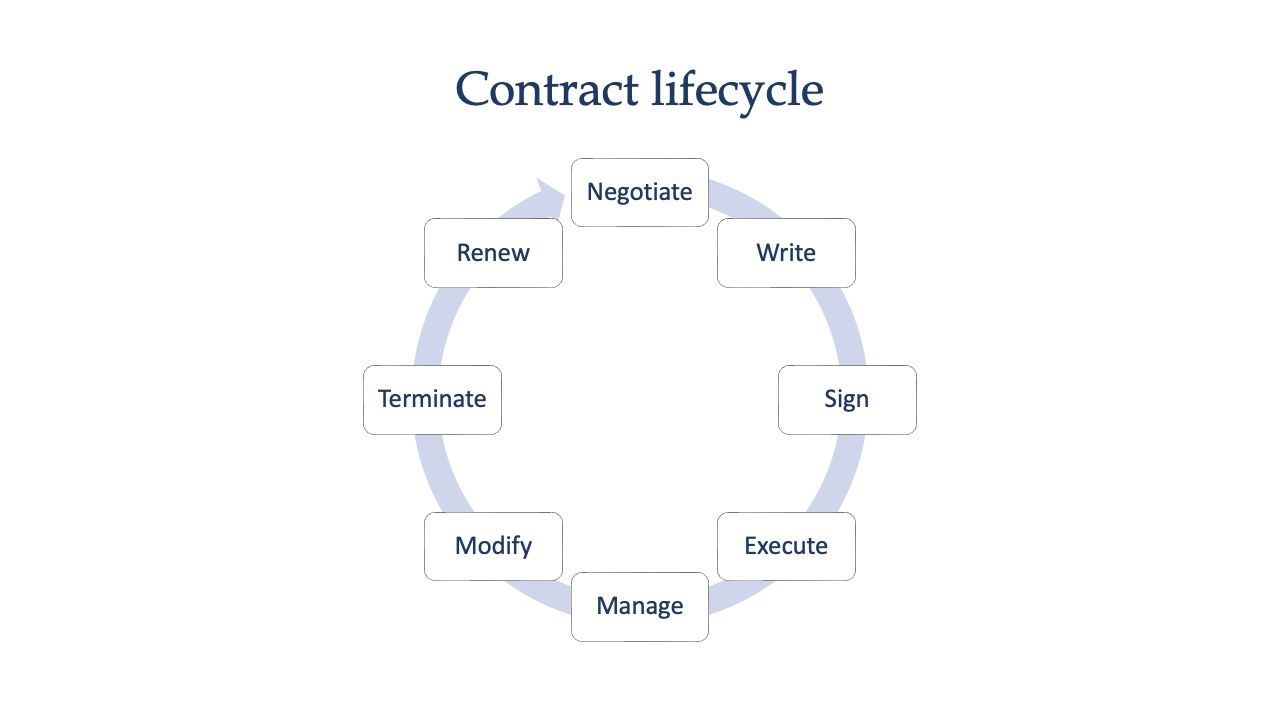Contract management in 10 Points {EN}
Contract management in 10 Points.

6. Contract Monitoring
After the contract is executed, it must be monitored to ensure that all parties are meeting their obligations. Monitoring can include regular reporting, site visits, compliance audit and other assessments.
7. Contract Amendment
Sometimes, changes in the business environment or other factors require contract amend-ments. It is essential to update the T&C to meet service accuracy and efficiency. It imply to have a process in place to manage contract amendments.
8. Contract Renewal or Termination
Contracts have a specific lifespan, and it is key to have a process in place to manage contract renewals or terminations. This involves evaluating the performance of the contract and deciding whether to renew or terminate it. Defining exit clauses will help to avoid stranded cost when it is necessary to stop a business relationship.
9. Contract Compliance
Compliance is essential in contract management. All parties must adhere to the contract terms and conditions. Evermore when you are in a regulated domain of activity. The non respect of regulatory constraint can have far-reaching consequences. Therefore it is normal that failure to comply with the contract can result in legal action or financial penalties.
10. Contract Performance Evaluation
Finally, contract performance evaluation is essential. It involves assessing the success of the contract in meeting its goals and objectives. Evaluation can help identify areas for improve-ment and ensure that future contracts are more effective.
Conclusion
In conclusion, contract management is an essential process for any organization that enga-ges in business relationships with other entities. Effective contract management can lead to improved relationships, increased efficiencies, and cost savings. By following the top 10 points of contract management, organizations can ensure that their contracts are managed effectively and efficiently.
#contractmanagement #governance #contract #service #corporategoverance



